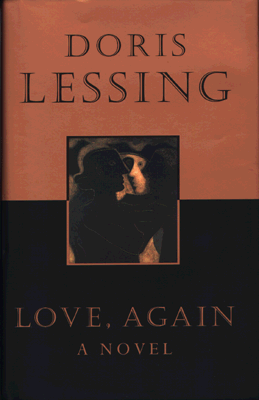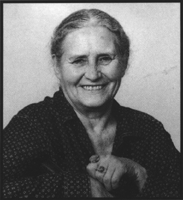 |
Love, Again
| | Year First Published: | 1996 | | First Published by: | Flamingo | | Category: | Novel | | This Edition: | British first edition | | ISBN: | 0-00-223936-0 |
| 
|
From the book jacket: Love, Again is Doris Lessing's first novel since The Fifth Child in 1988. It is based around the discovery of the journals of Julie Vairon, an intelligent and lovely but wayward French girl from Martinique, brought to Provence at the end of the nineteenth century by one of her devoted lovers. Julie was a musician, a diarist, an artist, a free woman ahead of her time. Nearly eighty years after her death in 1912, her music and her art illuminate the lives of the characters of Love, Again, when Sarah Durham, a theatrical producer, commissions a play based on her life. The play captivates all who come into contact with it, and dramatically changes the lives of everyone involved. For Sarah - an old woman - the change is profound; she falls in love with two younger men, one after the other, causing her to relive her own stages of growing up, from immature and infantile love (the beautiful and androgynous Bill) to the mature love, Henry.
Lessing brilliantly captures the atmosphere of the theatre and the overheated atmosphere of any group of people continuously together or obsessively concerned with a long-running project. But the main themes of the book are different, and ones she has never tackled before. What happens to the sexuality of middle-aged, or older, men and women like Sarah? What happens when they fall in love, or lust, with people much younger than themselves? How do any of us cope (or not) with passion, real passion, with real pain, and when one part of our life overwhelms all the others? Where does our need for love come from, and does it ever disappear? Or are we condemned, or blessed, to fall in love again and again and again?
The force with which Doris Lessing confronts these questions makes this novel one of the most compelling and memorable she has ever written. In the course of it she shows she has lost none of her power to shock or surprise: she is a writer for whom there are no taboos. Nor has she begun to give easy answers: life is often messy, things don't fit together as they should, we often don't get what we want. But by going out unflinchingly in front of us she is able, without a trace of sentimentality or condescension, to reassure us - and to show us, like all truly great writers, that this, perhaps, is what life is really like.
Also see:
|
|